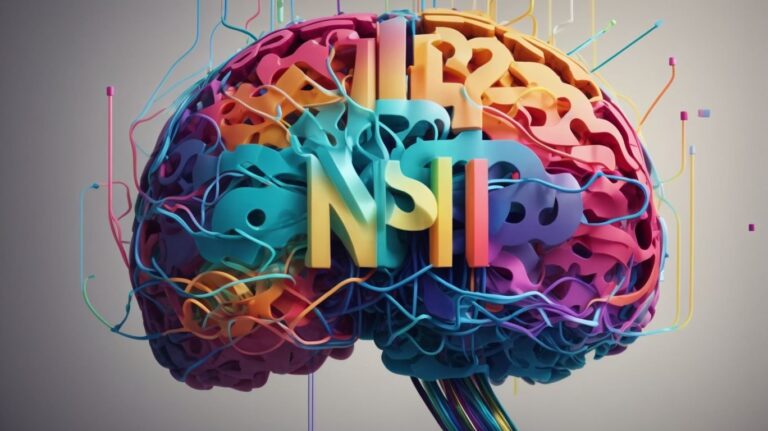Are you fascinated by human behavior and the mind? Have you ever considered pursuing a degree in psychology? In this article, we will explore the different types of psychology degrees, the benefits of studying psychology, and the exciting career opportunities available to psychology degree holders.
From understanding human behavior to contributing to society, a psychology degree offers a wide range of possibilities for personal growth and professional success. Whether you aspire to become a clinical psychologist, counselor, researcher, or mental health advocate, a psychology degree can open doors to a rewarding and fulfilling career. Let’s dive into the world of psychology and discover the endless opportunities that await you.
Contents
- 1 What Is a Psychology Degree?
- 2 What Are the Different Types of Psychology Degrees?
- 3 What Are the Benefits of Pursuing a Psychology Degree?
- 4 What Are the Opportunities for Psychology Degree Holders?
- 5 Frequently Asked Questions
- 5.1 What are the benefits of pursuing a psychology degree?
- 5.2 What types of career opportunities are available with a psychology degree?
- 5.3 How does a psychology degree contribute to personal growth and self-discovery?
- 5.4 What skills and knowledge are gained through a psychology degree?
- 5.5 Can a psychology degree be beneficial for non-psychology careers?
- 5.6 What are the potential salary and job growth opportunities for psychology degree holders?
What Is a Psychology Degree?
A psychology degree is an academic credential that focuses on studying human behavior, emotions, and mental processes, providing valuable insights into the complexities of the mind and the factors influencing our actions.
By looking into various theories and research methods, individuals pursuing a psychology degree gain a deeper understanding of human cognition, development, and interpersonal relationships. This knowledge equips them to analyze and interpret human behavior in different contexts, paving the way for meaningful interventions and support.
With a psychology degree, individuals can embark on diverse career paths in areas such as counseling, clinical psychology, research, and organizational behavior. These professionals play a crucial role in helping withdividuals facing mental health challenges, improving relationships, and fostering personal growth.
What Are the Different Types of Psychology Degrees?
Psychology degrees offer various educational paths for students interested in the field, ranging from undergraduate programs to specialized graduate studies that cater to different career goals and interests.
One of the most common undergraduate degrees in psychology is the Bachelor of Science (B.S.) or Bachelor of Arts (B.A.) in Psychology, which provides a foundational understanding of human behavior and mental processes.
For graduate studies, students can pursue a Master’s degree in Psychology, which offers more in-depth knowledge and specialization in areas such as clinical psychology, counseling psychology, or research psychology.
Specialized degrees like Doctorate in Clinical Psychology or Industrial-Organizational Psychology focus on training professionals for specific fields within the broader scope of psychology.
Each type of degree equips students with the necessary skills and knowledge to pursue diverse career opportunities in the field of psychology.”
Bachelor’s Degree in Psychology
Obtaining a Bachelor’s Degree in Psychology serves as the foundation for exploring the fundamentals of human behavior, research methodologies, and counseling techniques, preparing students for various career paths within the psychology field.
Throughout the curriculum of a Bachelor’s Degree in Psychology, students delve into various areas such as cognitive psychology, developmental psychology, social psychology, and abnormal psychology. This broad scope allows individuals to develop a strong understanding of the human mind and behavior.
Students have the opportunity to engage in hands-on research projects, honing their analytical skills and critical thinking abilities. These research experiences not only enhance academic learning but also prepare students for future graduate studies or careers in research settings.
The program offers courses that focus on developing counseling skills, essential for individuals pursuing careers in clinical psychology, counseling psychology, or mental health counseling. These courses provide students with the necessary tools to effectively communicate with clients, demonstrate empathy, and facilitate positive behavioral changes.
Master’s Degree in Psychology
A Master’s Degree in Psychology offers opportunities for specialization in diverse areas such as community psychology and neuroscience, allowing students to delve deeper into specific topics and acquire advanced skills for professional practice and research.
Engaging in community engagement projects is a significant aspect of specialized studies where students can apply theoretical knowledge to real-world settings, addressing social issues and creating positive change within communities.
Neuroscience research within a Master’s program equips individuals with the tools to explore the complexities of the brain and behavior, paving the way for breakthroughs in mental health treatment and understanding cognitive processes.
Doctoral Degree in Psychology
Earning a Doctoral Degree in Psychology equips individuals with the expertise to work in clinical settings, develop therapeutic relationships, and become effective listeners who make a positive difference in the lives of their clients.
Advanced training in a doctoral program often involves immersive experiences in clinical placements where students interact with diverse patient populations under the supervision of experienced psychologists. These hands-on opportunities help future psychologists hone their skills, understand the intricacies of different therapeutic modalities, and apply theoretical knowledge in real-world scenarios.
- Building therapeutic relationships is a crucial aspect of clinical practice, emphasized throughout doctoral education. As practitioners-in-training, students learn to establish trust, empathy, and understanding with clients, essential for fostering a safe and conducive therapeutic environment. Mastering the art of forming meaningful connections is key to effective interventions and client progress.
What Are the Benefits of Pursuing a Psychology Degree?
Pursuing a psychology degree offers reasons to gain deeper insight into human behavior, access to diverse graduate programs for specialization, and opportunities for personal growth through understanding oneself and others.
Studying psychology not only equips individuals with the knowledge to comprehend the complexities of human emotions and actions but also provides a solid foundation for a multitude of career paths. With a psychology degree, one can delve into fields such as counseling, human resources, research, and even marketing – showcasing the versatility and applicability of psychological principles. The process of studying psychology involves critical thinking, problem-solving, and effective communication skills, nurturing qualities that are highly valued in various professional settings.
Understanding Human Behavior
Developing a deep understanding of human behavior equips individuals with essential skills to connect with people, pursue their passions in the field, and make a positive difference in the lives of others through psychological insights.
The ability to comprehend human behavior not only enhances one’s interpersonal skills but also fosters empathy and compassion. By looking into the intricacies of why people act the way they do, individuals can tailor their approach to effectively assist them in overcoming challenges. This profound insight allows professionals in this field to build trusting relationships, offer meaningful support, and create impactful changes in various settings.
Versatile Career Options
A psychology degree offers diverse job opportunities across various fields, providing graduates with the flexibility to work in different settings such as healthcare, education, research, or counseling.
Psychology graduates can embark on a fulfilling career path in the healthcare sector, working as clinical psychologists, mental health counselors, or behavioral therapists, helping individuals overcome mental health challenges and emotional struggles.
In educational settings, they can pursue roles as school psychologists, academic advisors, or special education teachers, promoting student well-being, academic success, and emotional development.
For those inclined towards research, opportunities exist in academia, government agencies, or private research institutions, conducting studies on human behavior, cognition, or social interactions.
Alternatively, graduates can opt for counseling positions, offering psychotherapy services, career guidance, or family counseling in private practices, mental health clinics, or rehabilitation centers.
Personal Growth and Self-Reflection
Studying psychology fosters personal development, provides valuable insights for self-reflection, fuels passion for the job, and encourages continuous growth in both professional and personal aspects of life.
Through the lens of psychology, individuals gain a deeper understanding of themselves and others, which is essential for personal growth. This field equips individuals with tools to navigate challenges, cultivate empathy, and enhance communication skills, all of which are crucial for fostering healthy relationships. The insights gained from studying psychology can lead to increased self-awareness, aiding in the process of self-reflection and personal improvement.
For those in the workforce, the principles of psychology translate into enhanced job satisfaction by enabling individuals to comprehend their motivations, strengths, and areas for development. This self-awareness can guide individuals towards fulfilling career paths, improving workplace relationships, and achieving a sense of purpose in their professional endeavors.
Contribution to Society
Psychology degree holders have the opportunity to contribute to society by applying their knowledge of human behavior, neuroscience insights, and therapeutic skills to make a positive difference in the lives of their clients and communities.
Engaging with the community is integral to the work of psychology professionals as they conduct outreach programs, lead support groups, and offer mental health education to diverse populations. By fostering empathy and promoting mental well-being, these professionals strengthen social connections and enhance the overall quality of life for individuals they interact with. Through their client interactions, psychologists provide a safe space for individuals to explore their thoughts and feelings, ultimately give the power toing them to overcome challenges and achieve personal growth.
What Are the Opportunities for Psychology Degree Holders?
Psychology degree holders have a wide range of opportunities in various fields such as clinical psychology, counseling, research, education, and mental health advocacy, utilizing their skills in understanding people and pursuing their passion for making a difference.
Some psychology graduates may choose to work in clinical settings, such as hospitals and mental health clinics, where they provide assessment, diagnosis, and treatment for individuals experiencing psychological distress. Others may opt for a career in counseling services, offering guidance and support to individuals and families facing emotional challenges.
For those inclined towards research, psychology degree holders can delve into conducting studies, analyzing data, and contributing to the advancement of psychological knowledge. In the realm of education, they can become educators, teaching psychology courses at colleges, universities, or even high schools.
Psychology professionals with a passion for advocacy may engage in mental health awareness campaigns, policy development, and community outreach initiatives to promote mental well-being.
Clinical Psychologist
Clinical psychologists play a vital role in providing therapy, developing emotional intelligence in clients, and helping individuals achieve their professional and personal goals through mental health interventions.
During therapy sessions, clinical psychologists create a safe and confidential environment where clients can express their deepest thoughts and emotions. By utilizing various therapeutic interventions such as cognitive-behavioral therapy and psychodynamic therapy, psychologists facilitate the process of introspection and self-discovery.
Emotional intelligence development is another key aspect of their work. Psychologists guide clients in recognizing and managing their emotions effectively, ultimately improving their interpersonal relationships and overall well-being.
Clinical psychologists assist individuals in setting realistic and attainable goals, providing them with the necessary tools and support to overcome challenges and obstacles.
Counseling Psychologist
Counseling psychologists focus on building strong relationships with clients, utilizing their interpersonal skills to provide guidance, support, and therapeutic interventions that enhance emotional well-being.
These professionals play a pivotal role in creating a safe and trusting space for individuals to explore their thoughts, feelings, and behaviors. By actively listening and demonstrating empathy, counseling psychologists facilitate a deeper understanding of client concerns and help them develop insight into their challenges. Through collaborative discussions and tailored interventions, they work towards give the power toing clients to make positive changes in their lives and navigate through complex emotional issues.
School Psychologist
School psychologists apply principles of educational psychology to support students, collaborate with educators and parents to promote teamwork, and assist in decision-making processes that enhance academic and social outcomes.
In educational settings, school psychologists play a crucial role in assessing students’ cognitive and emotional development, identifying learning challenges, and implementing interventions to address behavioral issues. They conduct evaluations using various assessment tools to create tailored strategies that meet the diverse needs of students.
Moreover, school psychologists actively participate in multidisciplinary teams, fostering collaboration between teachers, administrators, and families to create a supportive environment for students. By providing consultation and guidance, they help stakeholders develop effective communication strategies and implement evidence-based practices to enhance student learning and well-being.
Industrial-Organizational Psychologist
Industrial-organizational psychologists specialize in enhancing workplace dynamics, providing leadership development strategies for teams, and fostering career growth opportunities for employees through psychological insights and interventions.
These professionals play a vital role in studying organizational behavior and implementing strategies to improve communication, collaboration, and overall productivity in workplace settings. Through their expertise, they are able to assess the needs of both the employees and the organization to create tailored programs that address specific challenges and goals. Industrial-organizational psychologists use various assessment tools and psychological theories to develop training programs that enhance team leadership skills, promote effective conflict resolution, and facilitate career advancement pathways. By understanding the psychological factors that influence individual and group behavior, they help organizations create a positive work environment conducive to professional growth and success.
Forensic Psychologist
Forensic psychologists analyze criminal behavior, conduct behavior assessments, and collaborate with legal organizations to provide insights into the psychological aspects of crime, supporting investigative and legal processes.
They play a critical role in evaluating the mental state of individuals involved in criminal activities. This involves assessing their motivations, thought processes, and potential patterns of behavior.
Forensic psychologists are often called upon to provide expert testimony in court cases, shedding light on the psychological factors that may have influenced the commission of a crime.
Forensic psychologists also assist law enforcement agencies in creating profiles of potential suspects, aiding in the identification and apprehension of perpetrators.
Researcher
Psychology researchers collect and analyze data, publish findings in peer-reviewed journals, and utilize critical thinking skills to advance the knowledge and understanding of human behavior, contributing to the empirical foundation of the field.
Researchers in psychology play a vital role in shaping our understanding of the complexities of the human mind. Their meticulous data collection methods, combined with sophisticated analysis techniques, provide insights into various aspects of behavior and cognition.
By navigating through intricate statistical analyses, researchers unravel patterns and trends that inform theories and practical applications in the field of psychology. Through the publication of their research in esteemed journals, they engage with the broader academic community, fostering discussions and debates that drive further exploration.
Researchers employ critical thinking to evaluate existing studies, identify gaps in knowledge, and design innovative experiments that push the boundaries of psychological inquiry.
Teacher/Professor
Teachers and professors in psychology impart knowledge of educational psychology, promote diversity and inclusivity in the classroom, and cater to diverse student populations, fostering a learning environment that values individual experiences and perspectives.
They play a crucial role in guiding students to understand the nuances of educational psychology, helping them grasp theories and concepts that shape the field. By creating inclusive teaching practices,
educational psychology instructors ensure that students from various backgrounds feel respected and valued. These educators employ innovative approaches to address the diverse needs of their students, recognizing the significance of adapting teaching methods to suit individual learning styles. They actively promote diversity within the classroom, cultivating an environment where different perspectives enrich the educational experience.
Mental Health Advocate
Mental health advocates support individuals experiencing trauma, provide counseling as grief counselors, promote diversity awareness, and develop cultural competence to address the unique mental health needs of diverse populations.
These professionals play a crucial role in advocating for individuals who have undergone traumatic experiences, offering them unconditional support and guidance through their healing journey. As grief counselors, they utilize various therapeutic techniques to help individuals navigate through their struggles and find solace in the midst of loss.
- In addition, mental health advocates work tirelessly to raise awareness about the importance of embracing diversity and understanding the unique needs of different cultural groups. By fostering cultural competence, they ensure that mental health services are tailored to effectively meet the needs of diverse populations, promoting inclusivity and understanding in every interaction.
Frequently Asked Questions
What are the benefits of pursuing a psychology degree?
A psychology degree opens up various career opportunities, allows for personal growth and self-discovery, and provides a deeper understanding of human behavior and mental processes.
What types of career opportunities are available with a psychology degree?
A psychology degree can lead to careers in counseling, research, education, human resources, and many more. It also provides a strong foundation for graduate programs in various fields.
How does a psychology degree contribute to personal growth and self-discovery?
Through coursework and experiential learning, a psychology degree allows students to better understand themselves and others, improve communication skills, and develop critical thinking and problem-solving abilities.
What skills and knowledge are gained through a psychology degree?
A psychology degree provides a range of skills such as research and analytical skills, understanding of human behavior, communication skills, and empathy, which are applicable in various career fields.
Can a psychology degree be beneficial for non-psychology careers?
Absolutely. A psychology degree equips students with valuable skills and knowledge that can be applied in various industries such as marketing, business, law, and healthcare.
What are the potential salary and job growth opportunities for psychology degree holders?
According to the Bureau of Labor Statistics, the median annual wage for psychologists in 2020 was $82,180, with an expected job growth rate of 3% from 2019-2029. However, salary and job opportunities may vary depending on the specific career path chosen.




